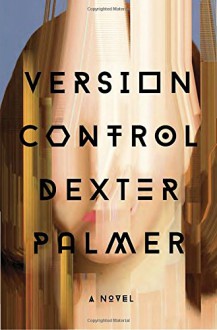
I wish I'd been able to read this book when I was assigned it for a graduate class on speculative fiction and utopias/dystopias. It's a rich novel with so much to discuss. As it is, I can imagine I'll only touch on some of the issues the book explores (see my long list of tags) and my reactions as I read.
First, this is the only speculative novel I've read with a Jewish protagonist and characters, steeped in Jewish culture. Woven together with Shira's story and her evolving relationship with Yod, the cyborg, is a story Shira's grandmother, Malkah, tells to Yod about the Jewish ghetto in Prague circa 1600, and the Golem created to defend those living there. At first I was thrown by the story and how it was being told, but after the first such chapter I got it. Obviously, Yod's and the Golem's stories parallel one another in essential ways. Primarily, both explore the question of "humanity" and personhood often raised by SF when androids or cyborgs are involved. I never get tired of this topic.
The novel was published in the early '90s, and so much is dead-on when it comes to our present and probable future--corporations running the world and determining culture; poverty and violence; the role of the internet; the destruction of the environment. The only "futuristic" bit that feels dated (if that makes sense) is the virtual reality-style raid, and that's only because people have been trying to make VR a thing for so long, and predicting it will be, despite it never catching on.
I loved the novel's representations of sexuality and gender, and it's clearly feminist, without being polemic. In its depiction of Tikva, the Jewish "free town" that exists beyond the corporate enclaves and "Glop" (megalopolis), socialism rises as the more humane and diverse system as compared to the rampant capitalism that rules most of the world.
Malkah and the Golem, Joseph, are the most interesting characters to me, and Nili grew on me as well, as she does with Shira. I sometimes struggled with Shira; she can be self-pitying and not always self-aware, though her journey involves coming into her own as a thinker and worker (however, she only comes to trust in herself when she learns she was deliberately not promoted; her stasis had nothing to do with a lack of skill--in other words, validation from others plays a strong role in her own sense of self, which is natural but dangerous). I also never liked Gadi, Shira's childhood love, which made it tougher for me to in turn like Shira.
My only other issue was with the pacing at the end, where for a moment it seems Shira is about to make a disastrous mistake before she quickly comes to her senses. I suppose this is meant as a contrast to the Maharal's way of dealing with Joseph, and a final show of growth for Shira. However, it comes and goes so fast, it felt melodramatic or heavy-handed.
If you like SF at all, or are eager for interesting female characters, or, like me, are maybe developing a deep fascination with A.I., this is a different and engrossing novel.

 Log in with Facebook
Log in with Facebook 









